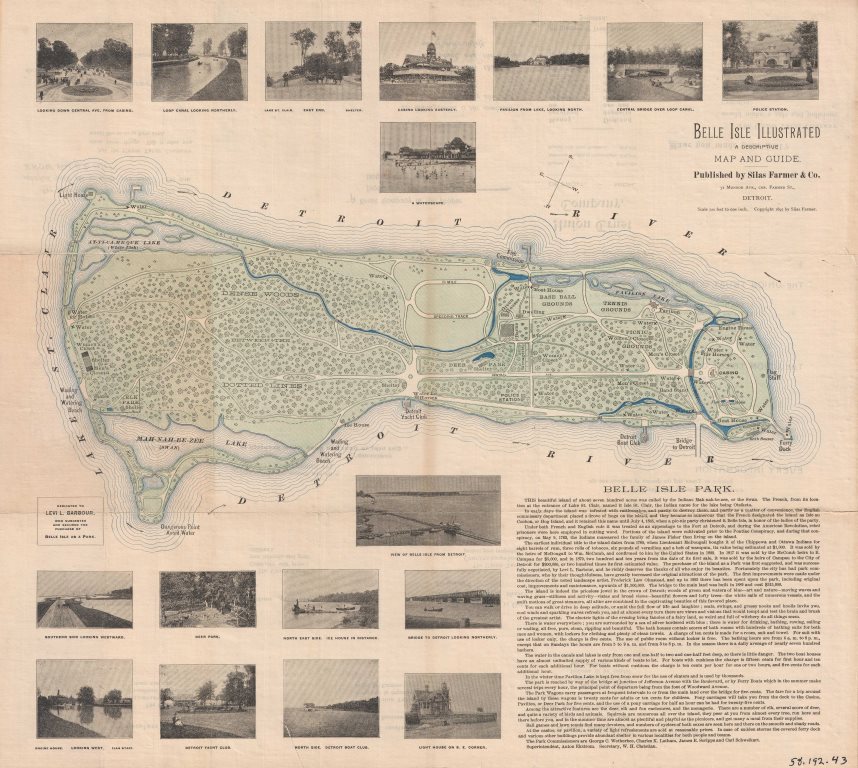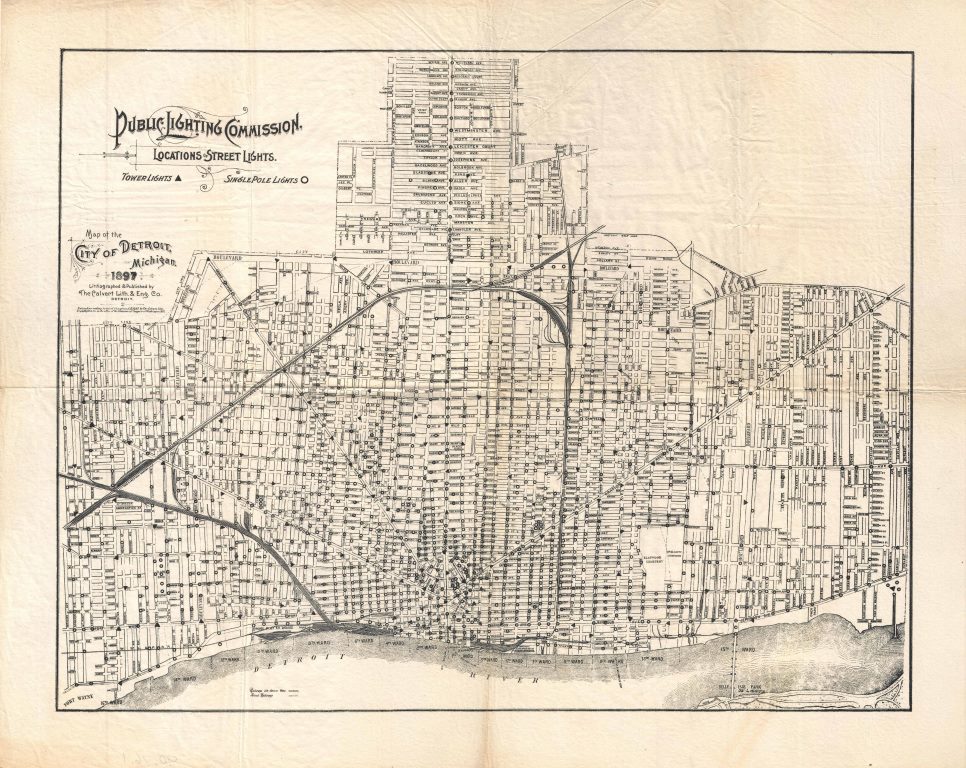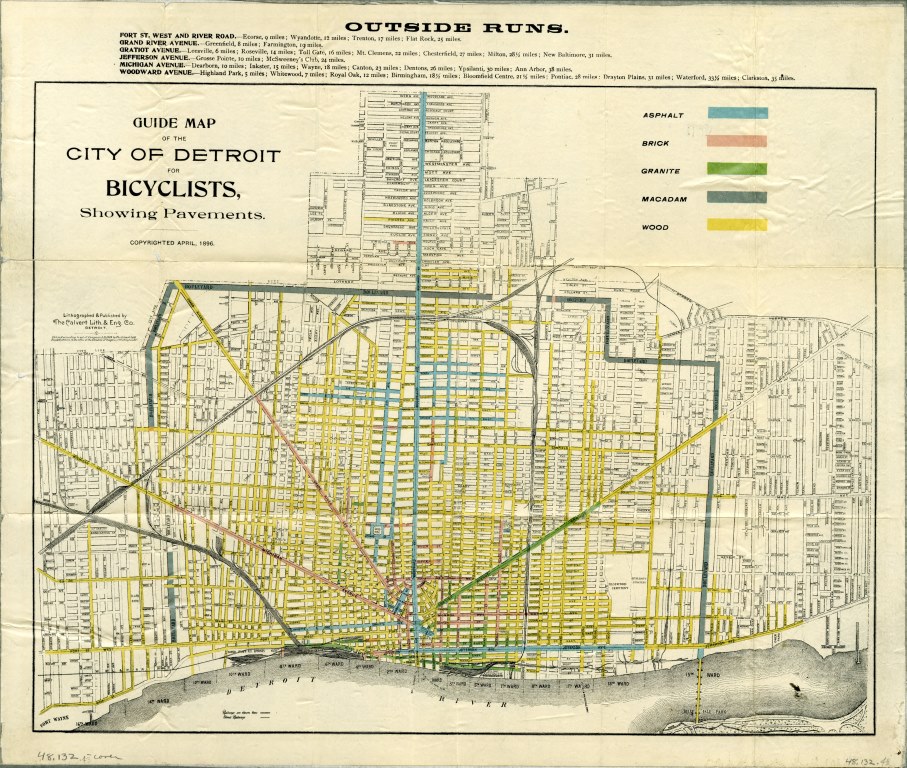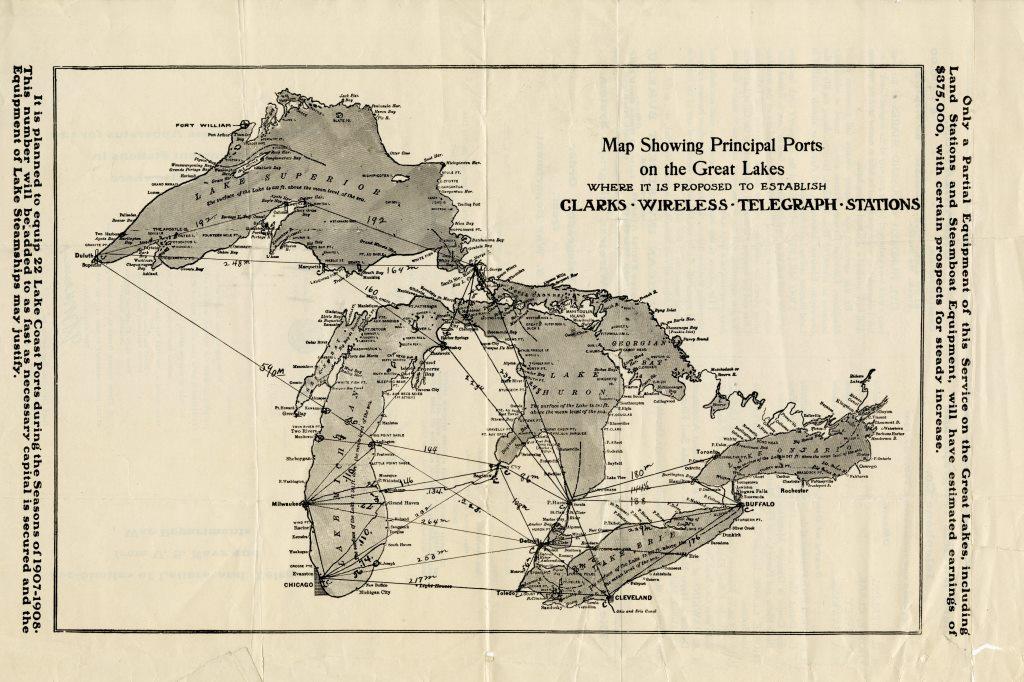Map Quest II
Posted December 8, 2014 by DHSdigital
Here, we continue featuring special maps from our collection from the period around the turn of the century.
 Belle Isle wasn’t quite as developed in 1895 as it is today. Notice the restrooms are called “closets,” there are water fountains for horses, and the three lakes have earlier names. The map is published by Silas Farmer & Co. and dedicated to Levi L. Barbour.
Belle Isle wasn’t quite as developed in 1895 as it is today. Notice the restrooms are called “closets,” there are water fountains for horses, and the three lakes have earlier names. The map is published by Silas Farmer & Co. and dedicated to Levi L. Barbour.
 In 1897, the Public Lighting Commission mapped every street light in the city, differentiating tower lights and single pole lights. Published by The Calvert Lith. & Eng. Co.
In 1897, the Public Lighting Commission mapped every street light in the city, differentiating tower lights and single pole lights. Published by The Calvert Lith. & Eng. Co.
 Today’s cyclists are concerned with bike lines on our busy roads, but in 1896 it was more important to note what type of road surface might be encountered. This map published by The Calvert Lith. & Eng. Co. has color coded roads paved in asphalt, brick, granite, macadam, and wood.
Today’s cyclists are concerned with bike lines on our busy roads, but in 1896 it was more important to note what type of road surface might be encountered. This map published by The Calvert Lith. & Eng. Co. has color coded roads paved in asphalt, brick, granite, macadam, and wood.
 This circa 1906 map of the Great Lakes shows the proposed locations for telegraph stations using Thomas E. Clark's wireless technology.
This circa 1906 map of the Great Lakes shows the proposed locations for telegraph stations using Thomas E. Clark's wireless technology.


